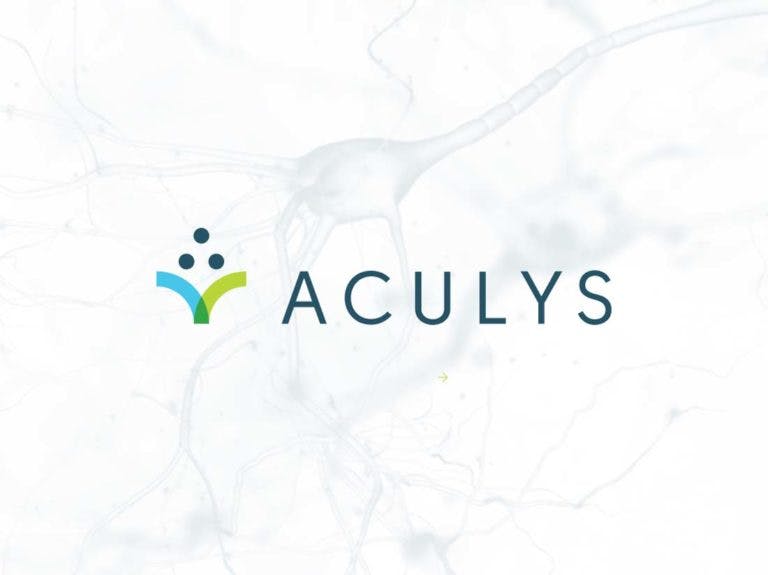Aculys Pharma Files New Drug Application for Diazepam Nasal Spray in Japan: An Antiepileptic Drug for the Treatment of Epileptic Seizures

Tokyo, Japan, September 2, 2024 – Aculys Pharma, Inc. (“Aculys”), a clinical stage biopharmaceutical company focused on commercializing innovative treatments for neurological conditions, announced that it has submitted a New Drug Application to the Ministry of Health, Labour and Welfare (MHLW) for diazepam nasal spray, an antiepileptic drug being developed in Japan for the treatment of status epilepticus or epileptic seizures that may lead to status epilepticus. Diazepam has been designated as an orphan drug by MHLW. If approved, the drug will be the first intranasally administered antiepileptic drug and in adult patients, the first rescue treatment option outside of the hospital setting in Japan.
“Although many patients with epilepsy are able to lead normal social lives with appropriate treatment, 20% to 30% of the patients experience refractory epilepsy which is characterized by difficulty in controlling seizures with medication.1 If seizures prolong for an abnormally long period of time or develop into status epilepticus, where seizures repeatedly recur, they may cause brain damage or long-term neurological sequelae. Prompt medical intervention is therefore extremely critical2,” said Hidemasa Tanigaki, Chief Executive Officer of Aculys Pharma. “The efficacy and safety of diazepam nasal spray have been confirmed in clinical trials and through regulatory approval overseas, and its intranasal formulation allows ease of use in epileptic seizures, which we believe will contribute to emergency treatment outside of medical facilities, at home or elsewhere. We will continue to work for the approval of the diazepam nasal spray so that it can be delivered to patients and families in Japan as soon as possible.”
“A survey conducted in 2023 showed that caregivers of pediatric patients with epilepsy were in need of fast-acting and easy-to-use therapies to treat epileptic seizures that occur outside of a medical setting.3 Further, in Japan, rescue medications that can be used outside of a medical setting are available only for pediatric patients; there are no approved rescue medications for patients of age 18 years or older,” said Eiji Nakagawa, Special Deputy Director, Director of Department of Epileptology, Director of Comprehensive Epilepsy Center, National Center of Neurology and Psychiatry Hospital (NCNP). “Diazepam nasal spray has already proven to be effective and safe in pediatric and adult patients overseas. We look forward to serving patients across age segments with this drug in Japan as well.”
The New Drug Application is based on results of a multi-center Phase 3 clinical study in Japan, a Phase 1 clinical study in Japan, and a clinical study outside of Japan.
[Related news] Aculys Pharma Delivers Positive Phase 3 Clinical Study Interim Analysis Result of a Diazepam Nasal Spray: An Antiepileptic Drug for the Treatment of Epileptic Seizures (Aculys Pharma, October 18, 2023).
https://aculys.com/en/news/20231018-1092/
Aculys Pharma is a clinical stage biopharmaceutical company that is pioneering ways to eliminate drug lag/drug loss in Japan, and is working to resolve social issues related to neurological and psychiatry diseases. The company will seek marketing approvals for diazepam nasal spray, a new treatment option that can serve the emergency treatment needs of patients with recurrent epileptic seizures, to deliver the drug to patients, caregivers, and healthcare providers as early as possible.
About diazepam and diazepam nasal spray
Diazepam has been used in Japanese medical practice for about 60 years as a treatment for epileptic seizures as an injection as well as other forms. It is also administered as a suppository by non-medical personnel, such as patients and caregivers, outside medical institutions.
Diazepam nasal spray was developed by the U.S. pharmaceutical company Neurelis, Inc. Aculys Pharma holds an exclusive license to develop and commercialize this treatment in Japan and the Asia-Pacific region* (excluding Greater China and Singapore). In 2020, the FDA approved Neurelis’ VALTOCO® (diazepam nasal spray) as acute treatment of intermittent, stereotypic episodes of frequent seizure activity (ie, seizure clusters, acute repetitive seizures) that are distinct from a patient’s usual seizure pattern in patients with epilepsy 6 years of age and older. In June 2023, China’s National Medical Products Administration (NMPA) approved diazepam nasal spray as effective for the same indication.
(*Asia-Pacific region: Australia, Brunei, Cambodia, Indonesia, South Korea, Laos, Malaysia, Myanmar, New Zealand, Philippines, Thailand, Vietnam)
About epilepsy
Epilepsy is a chronic brain disorder that causes loss of consciousness and/or convulsions (epileptic seizures) as the result of excessive electrical excitation of nerve cells (neurons) in the brain. An estimated 600,000 to 1,000,000, or 5 to 8 in 1,000 people in Japan have epilepsy. As treatment has advanced, many people with epilepsy are able to control their seizures with proper diagnoses and antiepileptic medications and are able to lead normal social lives; however, about 30% of patients, as well as their families and caregivers, still need to deal with frequent, repeated seizures.1,4
The causes, symptoms, and severity of epilepsy vary greatly from one individual patient to another, and similarly, epileptic seizures are diverse in nature from patient to patient. Among the diverse seizure types, some people experience seizures that recur many times a day or seizures that do not terminate after a certain period of time (status epilepticus). These patients are at increased risk of brain damage and reduced life expectancy.2 When repetitive seizures occur, people with epilepsy must seek emergency treatment by healthcare professionals. In Japan it takes on average 20—40 minutes from the time an emergency call is placed until a person is transferred to a hospital for treatment.2 An extensive overseas survey of patients, their families, and physicians has reported that recurrent epileptic seizures cause significant emotional, social, and financial burdens on patients and their families.5
About Neurelis, Inc.
Neurelis, Inc., is a neuroscience company focused on the development and commercialization of therapeutics for the treatment of epilepsy and orphan neurologic disorders characterized by high unmet medical needs. For more information about Neurelis, please visit www.neurelis.com.
About Aculys Pharma, Inc.
Aculys Pharma is a clinical stage biopharmaceutical company that is pioneering ways to eliminate drug lag/drug loss in Japan, and is working to resolve social issues related to neurological and psychiatry diseases. Its corporate name was created from the philosophy of serving as a “Catalyst to Access.” Aiming to act as a bridge for innovative medical care in the field of neuropsychiatry, Aculys Pharma develops and commercializes novel pharmaceuticals and provides innovations for better medical care to patients, their families, healthcare professionals, and society.
Company name: Aculys Pharma, Inc.
Location: 2-14-4 Kita-Aoyama, Minato-ku, Tokyo, Japan
Representative: Hidemasa Tanigaki
Establishment date: January 2021
URL: https://www.aculys.com
Information concerning pharmaceutical products (compound under development) contained herein is not intended as advertising or as medical advice, but for disclosure of management information.
References:
- Epidemiological survey on the prevalence, diagnosis, and treatment of epilepsy and issues to be solved to establish a healthcare system for the disease, 2013 https://mhlw-grants.niph.go.jp/project/22749 (Japanese only) (Accessed on Sep 2, 2024).
- Treatment guidelines for pediatric status epilepticus & pediatric convulsive status epilepticus 2023 (Japanese Society of Child Neurology) (Japanese only).
- Okazaki S, Nakagawa E, et al. Emergency management of pediatric epileptic seizures in non-hospital settings in Japan. Epilepsy Behav 2024;158:109914.
- Kwan P., Brodie, M.J. Early identification of refractory epilepsy. N. Engl. J. Med., 2000 Feb 3; 342(5): 314–
- Penovich, P.E., Buelow, J., Steinberg, et al. Burden of seizure clusters on patients with epilepsy and caregivers survey of patient, caregiver, and clinician perspectives. The Neurologist. 2017; 22: 207–
